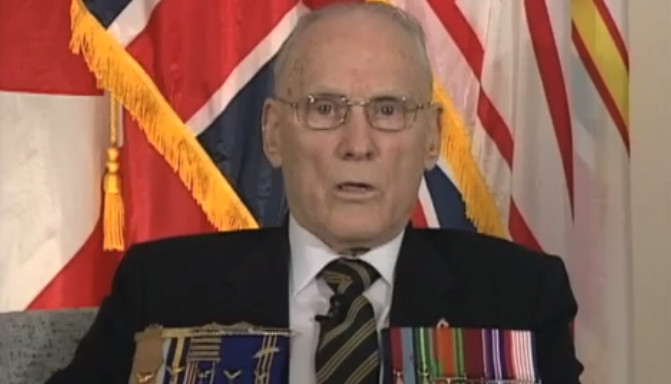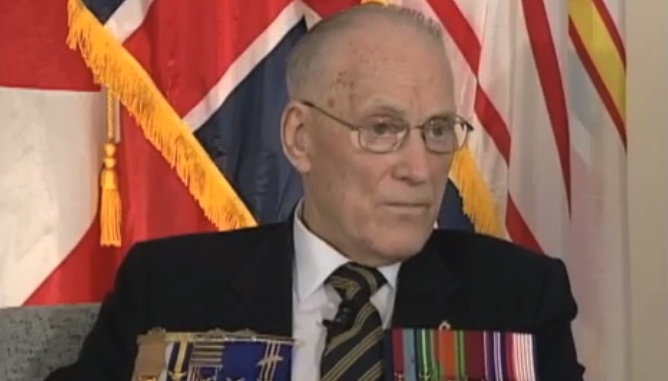Now we’re now at a place called Garoet - G-A-R-O-E-T. Now
where we were in Garoet, no living quarters, no anything and
we’re caught here living off of the land as best we could,
pineapples, lots of pineapples and lots of bananas, but over
and above that we had nothing to live on. So we stayed at
Garoet for maybe a week and the Japanese came in after they
landed on both sides of the Island, they cut the Java right in
two and they came in and they said, “you fellows can go up in
the mountains now and grow your own vegetables” and that was
only a skylark see. We went on the mountains alright.
We didn’t grow any vegetables. We were only giving them
time to get their army in and their transports. After they got
their transports in they came up and took us down to Batavia
and they put us in an old cattle bin, all rock floors and they
put us in that and they said you’re gonna stay here now until
we get a chance to move ya somewhere else, and we stayed
on that. Slept on hard rock, big cobble stones for about a
week and the only bit of food we got is what they pushed to
us under the fence. Talk about animals! My dear man.
You couldn’t believe it, then they said “We’d like for you,
everybody to write a letter home to their loved ones.”
Anyhow we were tickled to death to write a letter. We knew
they didn’t go anywhere. We wrote them anyway but the letters
never ever left from Java, they never left there. They were
trying to get some information about us, who we were and what
we were and so on and so forth. Anyhow we stayed there for a
little while then they took us into Batavia Proper. We did
nothing in Batavia anymore than sat around huts all day, lots
of bed bugs, lots of fleas, lots of body lice. We sat around
there all day living on a little bit of rice and a few bananas.
After we were there for a little while, they decided that some
of us were going to move to Japan and someone said
to me not long ago “Why did you go to Japan?” Slave labour
certainly because we going to Japan they could release their
own personnel, put us in their jobs and release the other
fellow to the army. Now somebody asked me that, “Obvious”,
I said, “the question is they were looking for slave labour.”
So we stayed at Batavia for a little while and this night I
was called down to go down and load a boat and I remember the
boat quite well, the Manchester City. We had to go down and
load some tucks. Now this came from Britain now. She got
through to Batavia. Unloading the trucks and a fellow said to
me, he said, “Boy you’re not going to stay here are ya?’
One of the crew. I said, “Well I got no choice.
I’m in 36 Torpedo Squadron and I’m not going to leave here
unless my squadron leaves here. I’m not going to desert the
squadron.” “I tell you what to do,” he said, “you come aboard”
he says, “and I’ll stow you away because we’re going to
Australia,” and the Manchester City did get to Australia safe
and sound but I stayed with my squadron. I wouldn’t go.





